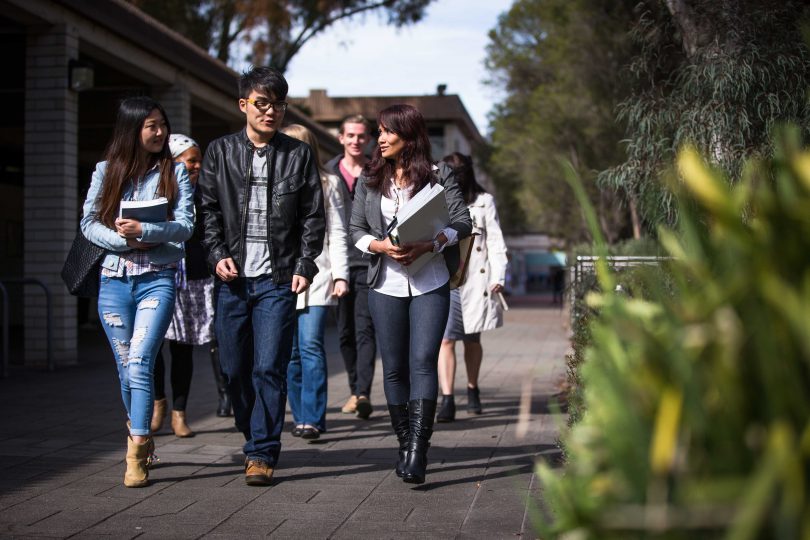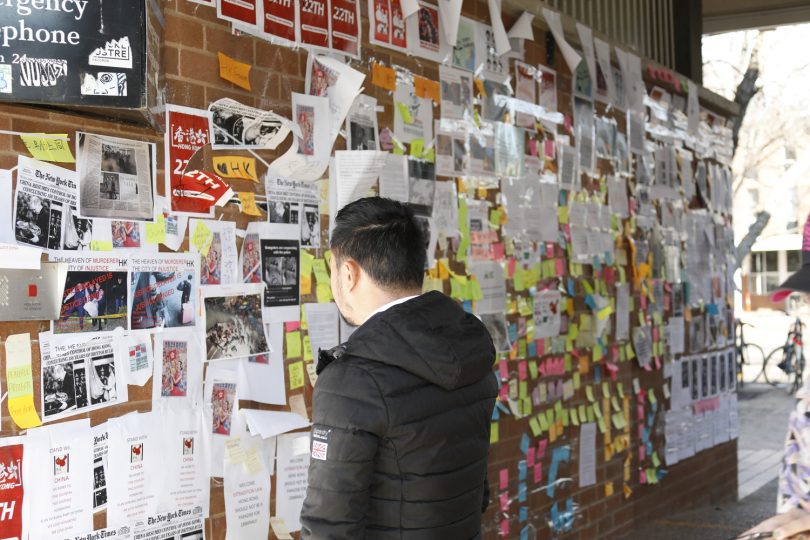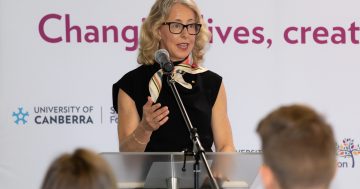
Foreign students at the University of Canberra. Photo: Supplied.
A strong sense of community is helping the University of Canberra avoid disruptions among its foreign student cohort during ongoing unrest and clashes between students and police in Hong Kong and Indonesia. More than 3200 foreign students attend the University of Canberra. Some are learning as off-shore students while 2000 live in Canberra.
In Indonesia, riot police have fired multiple rounds of tear gas at thousands of stone-throwing students who are protesting against a new law that critics say cripples the country’s anti-corruption agency.
In Hong Kong students are continuing their campaign for democracy and for an inquiry into alleged police brutality.
While arguments and activities sympathetic to students abroad have broken out in other universities, University of Canberra’s pro vice-chancellor (student partnership and international) Professor Lawrence Pratchett, a newly created position, says he has not seen anything like it in Canberra.
“That might be attributed to the fact we have a strong sense of community at the university which possibly doesn’t exist in those big-city universities where students are more dispersed,” Professor Pratchett said.
Last month Region Media reported sticky notes and posters has turned a busy underpass at the Australian National University into a Lennon Wall in support of the pro-democracy demonstrations in Hong Kong.
The wall near Copland Courtyard had attracted hundreds of notes calling for democracy and opposing the Chinese government. It emulates similar protest walls in Hong Kong and around the world.

A Lennon Wall at ANU becamse a focal point for pro-democracy messages. Photo: Region Media.
Professor Pratchett said it was difficult to tell whether the unrest would have an impact on recruitment of students at the University of Canberra in the future.
“To some extent it is a short-term issue. In Canberra, we have a much more diverse student population than many universities. We have students from over 100 countries currently studying with us so an issue in one country, while significant for students coming from that country, as a university it tends to have a small impact on our student load,” Professor Lawrence Pratchett said.
He expects the number of foreign students to continue rising in the ACT, adding to the economic and cultural benefits of foreign students. Numbers were trending up, although this year growth had been flatter but still higher than in 2017. Across Australia, numbers are expected to continue rising because of how Australian universities are viewed internationally.
“It is obviously a very competitive market. The United Kingdom will become more competitive in the wake of recent announcements, but that has to be measured by other geo-political factors going on,” Professor Pratchett said.
He said analysis by Access Economics had found that foreign students in 2018 contributed $415 million to the ACT economy on top of the fees they paid to the universities. Foreign students remaining for a couple of years after their university studies were completed would help further diversify the ACT economy.
The University of Canberra was planning to have a significant presence at the next National Multicultural Festival early next year with pop-up activities including learning a language, or an ethnic dance, in five minutes.
“That’s maybe an exaggeration, but that’s what we are going to call it,” Professor Pratchett said.













